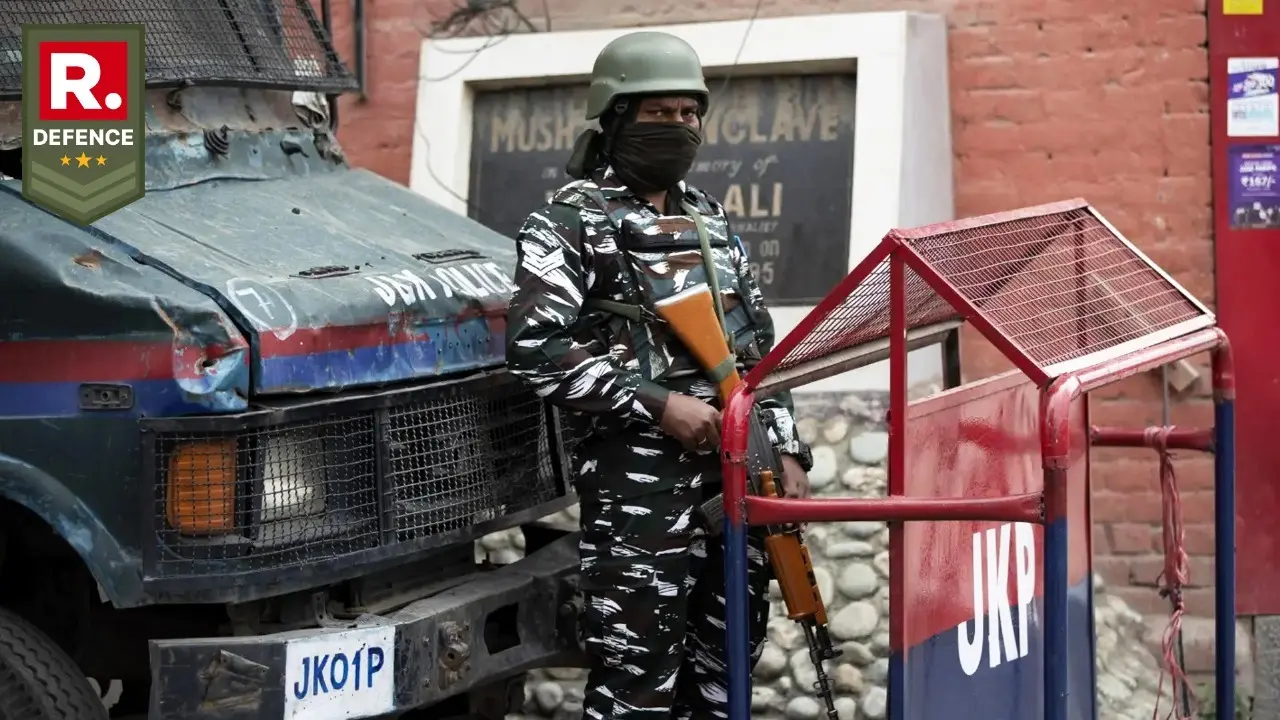Updated 18 March 2025 at 16:47 IST
J&K Police Warns of ‘Lone Wolf Attacks’ as Pakistan’s Terror Ecosystem Faces Internal Chaos
The Jammu and Kashmir Police has issued a high-alert advisory for all Protected Persons (PPs), citing a heightened risk of lone wolf attacks.
- Defence News
- 4 min read

Jammu, India – The Jammu and Kashmir Police has issued a high-alert advisory to all Protected Persons (PPs), citing escalating security threats, including the risk of lone wolf attacks and tethered killings. The advisory comes at a time when Pakistan is witnessing a dramatic unravelling of its own terror network, with high-profile assassinations and internal power struggles reshaping the dynamics of cross-border terrorism.
The advisory, accessed by Republic, instructs all Protected Persons (PPs) to share their travel plans well in advance with security agencies, warning that last-minute movements could expose them to grave security risks.
Among the key directives:
- No movement after sunset—a crucial restriction given the increased threat perception.
- Strict adherence to designated travel routes with Road Opening Party (ROP) security cover.
- Confidentiality in travel plans, ensuring they are shared with only a limited and trusted circle.
- Tactical deployment of security personnel, with pre-planned exit strategies in case of an attack.

The timing of this advisory is no coincidence—it follows back-to-back targeted killings in Pakistan, which have direct implications for India’s security. The death of Lashkar-e-Taiba commander Abu Qatal Sindhi, reports of Hafiz Saeed’s critical injury, and the Pakistan Army’s prolonged hostage crisis with Baloch insurgents signal that Pakistan’s militant ecosystem is in turmoil. Security experts warn that these developments could push desperate terror factions to escalate attacks in Jammu and Kashmir—hence the urgent security advisory.
Advertisement
Pakistan’s Terrorist Machinery Under Siege
In a dramatic escalation of intra-terror rivalries, Abu Qatal Sindhi—a key Lashkar-e-Taiba commander responsible for multiple attacks in Jammu and Kashmir—was shot dead by unidentified gunmen in Jhelum, Pakistan, on Saturday night. His elimination, widely believed to be an inside job, is being seen as a major setback for LeT.

Adding fuel to the fire, reports have emerged that Hafiz Saeed himself has been critically injured under mysterious circumstances while returning from a meeting with the Pakistan Army’s Corps Commander Mangla. Saeed, the co-founder of Lashkar-e-Taiba and mastermind of the 26/11 Mumbai attacks, was rushed to a military hospital in Rawalpindi, with the Pakistani establishment maintaining a tight-lipped silence over the incident.
Advertisement
These developments suggest a fracturing terror ecosystem in Pakistan, where competing factions and possible covert operations are systematically dismantling the terror leadership. With Saeed’s network-facing setbacks, Indian intelligence agencies are closely monitoring potential retaliatory moves by LeT sleeper cells in Kashmir—a direct reason for the J&K Police’s security tightening.
Terror Groups Losing Ground: What It Means for India
Abu Qatal Sindhi wasn’t just another militant—he was a top handler orchestrating terror operations in Jammu and Kashmir. His involvement in the Rajouri attack (January 2023) and the ambush of Hindu pilgrims (June 2023) in Reasi made him a key figure in Pakistan’s terror blueprint.

The National Investigation Agency (NIA) had named him in its charge sheet related to these attacks, and his death effectively disrupted LeT’s chain of command. However, intelligence sources suggest that his elimination might provoke retaliatory strikes, a scenario the J&K Police’s latest advisory is designed to prevent.
Pakistan’s Security Nightmare: Baloch Insurgents Hold Train Passengers Hostage
While Pakistan-based terror groups face setbacks, the Pakistani military itself is battling its own security nightmare. The Balochistan Liberation Army (BLA) recently launched a daring attack on the Jaffar Express, a train carrying over 400 passengers, including 100 security personnel. The insurgents detonated explosives, took hostages, and engaged in fierce gun battles with the Pakistan Army, triggering a 30-hour-long standoff.

Eyewitnesses reported that Baloch passengers were allowed to leave, forcing them to walk for four hours through rugged terrain to reach a railway station. The Pakistan Army’s delayed response only underscored its weakening control over its own territory.
Why India is Watching Closely
With Pakistan’s terror landscape in flux, India’s security agencies are on high alert. The J&K Police’s advisory is a direct response to the unfolding chaos in Pakistan, recognizing that the LeT’s leadership vacuum might trigger desperate attacks in Jammu and Kashmir. Internal Pakistani military conflicts could create a spillover effect, emboldening rogue elements to increase infiltration attempts. Furthermore, retaliatory strikes could be planned to reassert Pakistan-based terror groups’ presence in Kashmir.
The J&K Police’s latest security measures are not just precautionary—they are preemptive. With Pakistan’s militant infrastructure facing unprecedented internal strife, the risk of spillover attacks in Jammu and Kashmir remains high. The elimination of Abu Qatal Sindhi and the mysterious injury of Hafiz Saeed have undoubtedly weakened Lashkar-e-Taiba, but they have also left the terror group volatile and unpredictable. If anything, this is the moment when India needs to be most vigilant.
Pakistan’s terror pipeline may be cracking, but as history has shown, a wounded snake is often the most dangerous. The J&K Police’s advisory signals that India is ready—and watching.
Published By : Yuvraj Tyagi
Published On: 18 March 2025 at 16:47 IST
